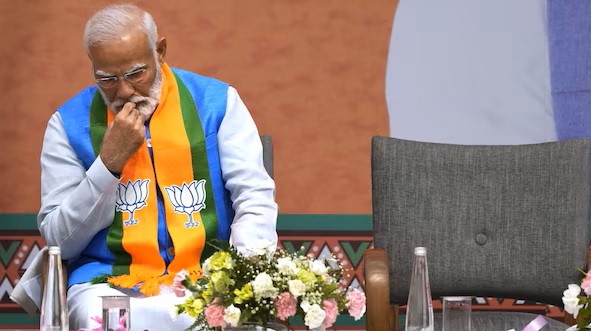India’s 18th Lok Sabha Elections held in 2024 marked a monumental event in the nation’s democratic journey. With a population exceeding 1.4 billion, orchestrating such a massive electoral exercise posed significant challenges, yet yielded invaluable insights into the country’s political landscape, writes Syed Azharuddin in The Hindustan Gazette.
Costing an estimated 1.35 lakh crore rupees, the 2024 elections emerged as the most expensive in history, surpassing even the colossal expenditure of the 2020 U.S. elections. This substantial investment, averaging 1,400 rupees per voter, begs the question of who truly reaped the benefits of this immense electoral spending.
Voter turnout, a crucial indicator of civic engagement, witnessed both positive trends and concerning anomalies. While the total number of voters increased to 642 million – a testament to growing citizen awareness – instances of voter exclusion and disenfranchisement underscored the need for stringent adherence to electoral protocols. With approximately 67% of registered voters casting their ballots, questions arise regarding the Election Commission of India’s efforts to bolster voter participation.
Evaluating the performance of political parties, particularly the ruling Bharatiya Janata Party (BJP) and the Indian National Congress (INC), reveals nuanced shifts in electoral dynamics. Despite a decrease in seat count, the BJP’s overall impact remained formidable, prompting reflection on the interpretation of electoral outcomes. Conversely, the INC’s notable gains highlight the potential for Opposition alliances to challenge incumbency and advocate for critical socio-economic issues.
Amidst these political developments, the representation and empowerment of minority communities emerged as pivotal concerns. The Muslim voter base, comprising a significant portion of the electorate, played a decisive role in shaping electoral outcomes across various states. However, questions linger regarding the translation of electoral support into substantive policy changes and enhanced political representation.
Looking ahead, the imperative lies in fostering inclusive political processes and nurturing diverse leadership pipelines. By harnessing the collective potential of all citizens, India can forge a path towards integrity, harmony, and equitable governance, setting a global precedent for democratic excellence.
As the dust settles on India’s 2024 Lok Sabha Elections, the nation stands at a crossroads, poised to embark on a transformative journey towards a more inclusive and participatory democracy.




